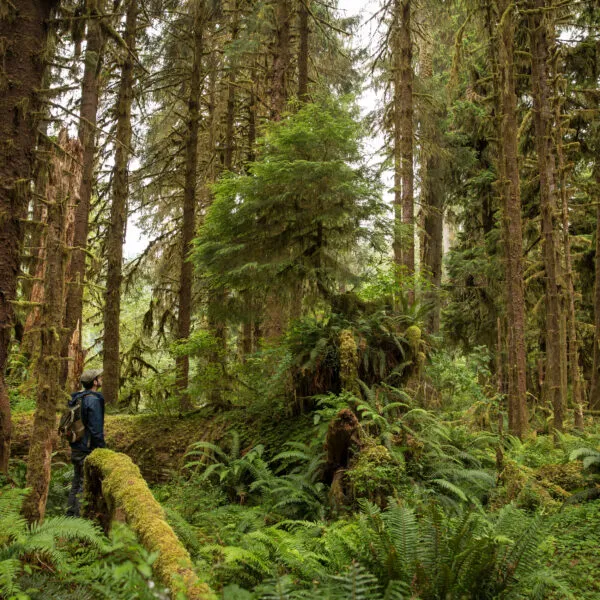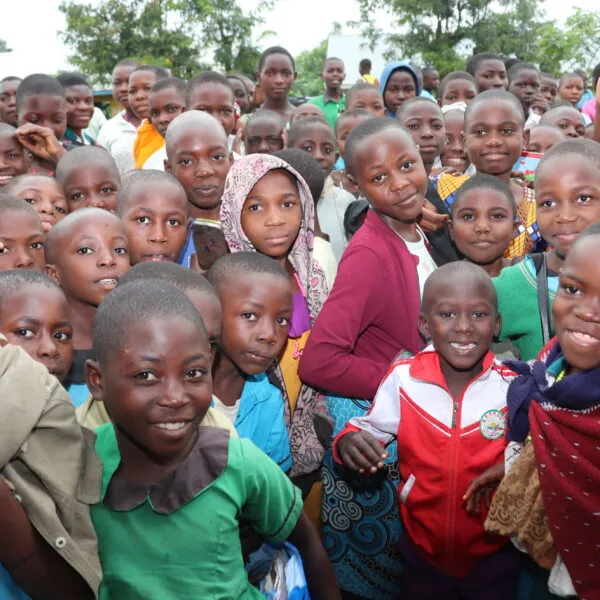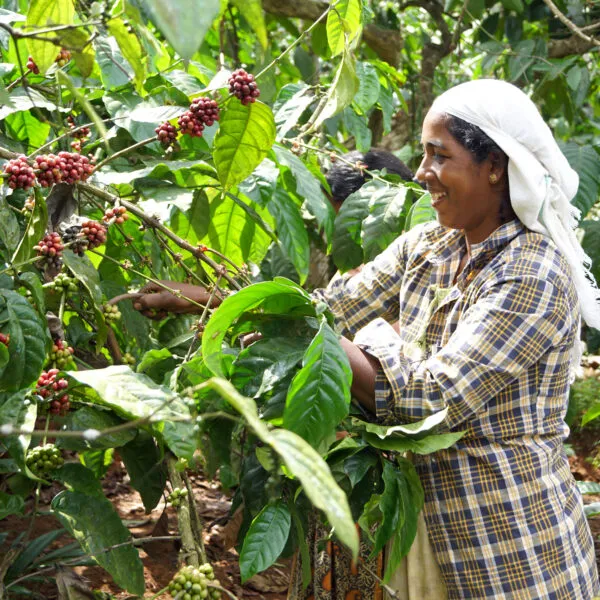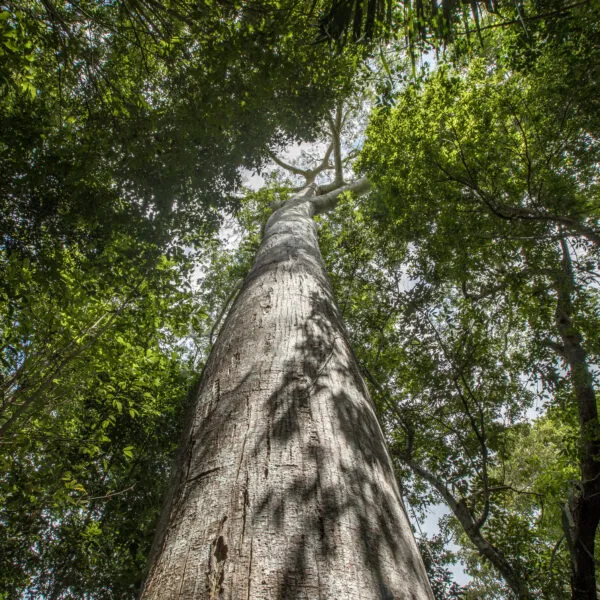Kenya is synonymous with delicious coffee. As one of the country’s main exports, coffee plays a big role in the national economy—and delights caffeine-lovers around the world. And even as Kenyan farmers contend with urgent environmental and social challenges, they are making progress toward a sustainable future for coffee. For an inspiring success story, just look to the Baragwi coffee cooperative—a perfect example of the positive impacts Rainforest Alliance certification can have for coffee farming right now and well into the future.
A partnership for growth and impact
Baragwi is nestled at the base of Mount Kenya, where the rich red volcanic soils give the local coffee beans their distinctive flavor. Since 2010, the Rainforest Alliance has worked with the cooperative’s members—all smallholder farmers—to embrace sustainable and regenerative agricultural practices. Here come some impressive statistics: Since achieving Rainforest Alliance certification, coffee production on the cooperative’s farms has tripled from five million kilograms of coffee cherries to 15 million kilograms. No doubt, this has also led the cooperative’s membership to grow from 11,000 farmers to 25,000 farmers, and the number of permanent administrative employees to more than double. All these advances have seen the cooperative’s annual income soar from about US$2.3 million to more than US$11.6 million.
Improving lives and livelihoods for coffee farming communities
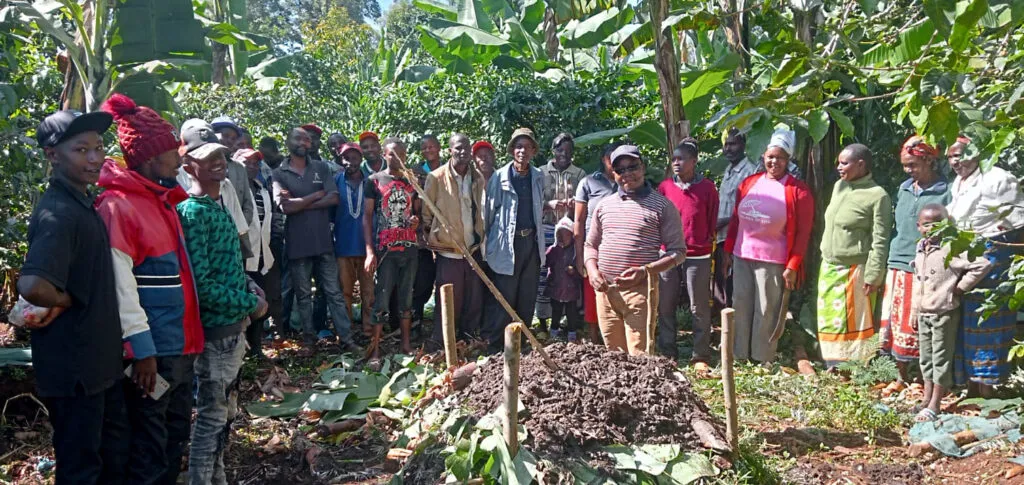
Boosting livelihoods has been one of Baragwi’s top goals since day one. Farmers now ensure that their workers receive the national minimum wage—and are committed to going further by putting wage improvement plans in place. As farmers’ incomes have improved, they’ve been able to invest in better housing for their families. The wider communities have benefited too, with improved access to clean water and more opportunities for women within the agricultural sector.
Following Rainforest Alliance training, the entire coffee cooperative is taking on human rights challenges head on—notably taking a firm stance against child labor. “We implemented policies to stop and prevent child labor, and trained all farmers, workers, and management representatives on how to assess and address child labor if it’s discovered,” said Cyrus Chumba, a manager at Baragwi. “These policies were not there before our certification journey began.”
Unique premiums support a more sustainable future
To address systemic supply chain problems and close the sustainability gap (which leaves farmers to bear the majority of the financial burden, risks, and climate impacts), the Rainforest Alliance firmly believes that a shared responsibility approach is best, distributing the benefits and costs of certification more evenly between farmers and companies. This translates to premiums paid directly to farmers from the companies sourcing their certified products. Farmers can use this money for continued improvements on their farms or in their cooperatives.
In Baragwi’s case, Cyrus shared that these premiums have enabled them to construct new metal beds and solar dryers for drying coffee. “We went from using disc pulper machines, which were old and inefficient, to eco-pulpers that are helping us save water and energy,” he said. “Baragwi has [also] invested in better sanitation facilities for workers.”
A more regenerative, climate-smart way to farm
Encouraging farmers to give back to the land is central to the Rainforest Alliance’s way of working. Since certification, Baragwi’s farmers now take a regenerative approach to their landscape. They actively mitigate climate change by conserving wetlands and tree-lined waterways, while also planting native trees to shade their coffee crops and enhance local biodiversity.
Certification has also changed the farmers’ approach to agrochemicals. The most harmful chemicals are not used anymore—and in cases where spraying is needed, a trained team handles application. These measures safeguard the health of both people and environment. “We had a lot of obsolete agrochemicals at our stores before certification. We used glyphosates for weed control and daconil for coffee berry disease and leaf rust control, but we no longer use them,” explained Cyrus. “There is [now] increased use of coffee varieties … that are less susceptible to pests, as well as Integrated Pest Management and regenerative practices.”
A thriving community
Cyrus was eager to emphasize the impact of Rainforest Alliance certification on Baragwi, their community, and their landscape: “Certification has led to the conservation of our critical ecosystems like rivers, forests, and wetlands. The workers are happy with the better working environment brought about by these investments and other modern farming technologies.” In short, our work together has helped Baragwi’s farming community to thrive, with cleaner rivers, better harvests, improved incomes—and all while producing consistently delicious coffee.

